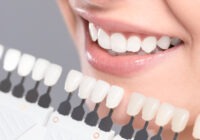
Your body goes through many changes when you’re pregnant. Many of them are temporary and subside after pregnancy, while others may be permanent or take a little longer to return to normal. Furthermore, there are many conditions you can experience during pregnancy that can cause dangerous complications if not monitored closely. Conditions like preeclampsia, gestational diabetes and gestational gingivitis are all somewhat common during pregnancy, but usually resolve with time. But did you know there’s another dangerous condition which could develop during pregnancy, and it may not go away at all? It’s called gestational sleep apnea, and it could affect up to 20 percent of pregnant women!
The dangerous part of gestational sleep apnea (or gestational OSA) is that you may not even realize you have it. After all, feeling tired, anxious, stressed, and having trouble sleeping are all common side effects of a healthy pregnancy. But sometimes those side effects can mean something more. Worse yet, gestational sleep apnea may not simply go away after pregnancy. For some it can linger for years before it’s ever discovered, putting you at significant health risk in the process.
So, how do you diagnose gestational sleep apnea, especially when the lines between OSA and typical pregnancy side-effects can be so similar. Many pregnant women gain weight, begin snoring, or spend restless nights tossing and turning during pregnancy. But if these symptoms don’t subside, it’s time to take action.
Gestational sleep apnea can be caused by many things, including weight gain, hormonal changes, brain changes, and throat anatomy changes. While it can be difficult to pinpoint exactly which of these could be causing your gestational sleep apnea, thankfully treating your gestational sleep apnea is fairly straightforward.
Dr. Abelar has been treating sleep apnea patients for many years without the use of CPAP therapy. At our clinic, we offer sleep orthotic solutions that are custom fit to the mouth. These devices fit the mouth like a retainer, and prop the airway open naturally while you sleep. This eliminates the need for forced air and uncomfortable masks, which often go unused by patients because they’re annoying and difficult to operate.
With a custom sleep orthotic, you don’t need to be tethered to a machine all night. They’re easier to clean, easier to wear, and much more comfortable.
If you suspect something might be off about your sleep, please speak to your physician as soon as possible and inquire about a sleep study to determine whether you could have gestational sleep apnea. Once you get a diagnosis, reach out to Dr. Abelar to discuss your treatment options.






